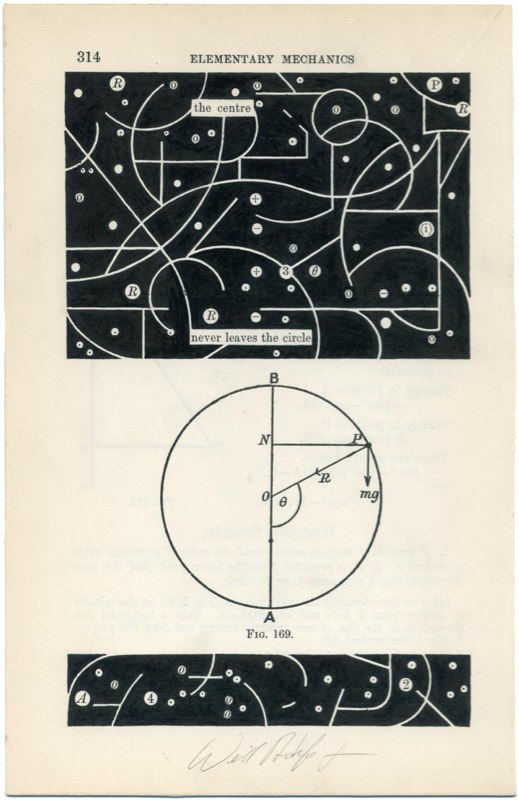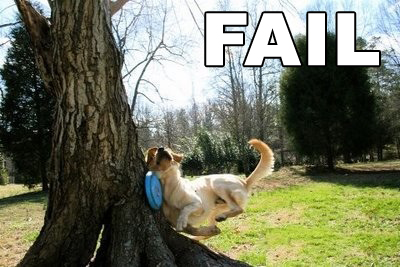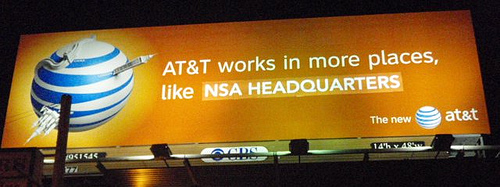Werner Herzog in Conversation With Errol Morris
In The Believer is a conversation that took place at Brandeis University in the fall of 2007, moderated by Alice Arshalooys Kelikian. And this is the best conversation I have ever read:
ERROL MORRIS: Yeah. The intention is to put the audience in some kind of odd reality. [To moderator] Werner certainly shares this. It’s the perverse element in filmmaking. Werner in his “Minnesota Manifesto” starts talking about ecstatic truth. I have no idea what he’s talking about.
But what I do understand in his films is a kind of ecstatic absurdity, things that make you question the nature of reality, of the universe in which we live. We think we understand the world around us. We look at a Herzog film, and we think twice. And I always, always have revered that element. Ecstatic absurdity: it’s the confrontation with meaninglessness.
I was talking with Ron Rosenbaum, a friend of mine, who had just finished a book on Shakespeare. We were talking about the meaning of meaninglessness. Is there such a thing? And I would say: yes. Werner’s work could be considered an extended essay on the meaning of meaninglessness.
WERNER HERZOG: Thank you, yes. It feels good to hear that. [Laughter]
Later:
WH: [. . .] And I said that we were going to do a film there in Plainfield, and that really upset Errol a lot. He thought I was a thief without loot. This was his country, his territory, his Plainfield, and I shot in Plainfield. I shot a film, Stroszek, which I think is forgotten and forgiven by now, and we can maintain friendship over this now.EM: I told Werner: For you to steal a character or a story isn’t real theft. But to steal a landscape, that is a very, very serious crime.
WH: I understand that. I take it to heart, but there actually is a film out there, and we can’t take it off the map.
EM: It’s a very good film.
WH: It has a beautiful end with a dancing chicken, and I really like it.
EM: Yes.
Via cityofsound.
Trumpet Love, Part 1
Posted by Scott McDowell to WFMU's Beware of the Blog.
In the last ten years or so the trumpet has been enjoying a renaissance. There are a number of gifted and innovative trumpet players the world over deconstructing, reinventing and rethinking the instrument in myriad ways. In the '80s when John Zorn was doing mouthpiece-only duck calls and blowing his sax into a bucket of water, the trumpeters were still playing somewhat straight. I suppose it was only a matter of time. What follows is a sample of the breadth of solo trumpet sounds percolating away.
I hate "new jazz". This is not new jazz, this is some great experimental music. Be sure to check the Mazen Kerbaj as well as Peter Evans.
Gin, Television, and Social Surplus
Clay Shirky:
Starting with the Second World War a whole series of things happened--rising GDP per capita, rising educational attainment, rising life expectancy and, critically, a rising number of people who were working five-day work weeks. For the first time, society forced onto an enormous number of its citizens the requirement to manage something they had never had to manage before--free time.And what did we do with that free time? Well, mostly we spent it watching TV
Via Daring Fireball and Warren Ellis.
The Oracle of Shepperton
Basically, it’s the story of Thomas’s doomed attempt to interview Ballard. He takes a taxi to Shepperton, and before he knows it is in a parallel dimension, being driven by a gruff hoodlum with clear contempt for his passenger.
Via cityofsound.
Christiaan Postma
The starting point with this project was a personal study about form & time. I put together more than 150 individual clockworks and made them work together to become one clock. I show the progress of time by letting the numbers be written in words by the clockworks. Reading clockwise, the time being is visible through a word and readable by the completeness of the word, 12 words from “one” to “twelve”.
Here is an animation of it in action.
Via MAKE: Blog.
After 122 Years, The Last Calf Is Sold
Beautiful "audio slide show" (need a better name for that) about the closing of the South St. Paul stockyards.
If you want more of the back-story, the news article is here.
Quantum bounce and cosmic recall
Lisa Zyga at physorg.com:
Until very recently, asking what happened at or before the Big Bang was considered by physicists to be a religious question. General relativity theory just doesn’t go there – at T=0, it spews out zeros, infinities, and errors – and so the question didn’t make sense from a scientific view. But in the past few years, a new theory called Loop Quantum Gravity (LQG) has emerged. The theory suggests the possibility of a “quantum bounce,” where our universe stems from the collapse of a previous universe. Yet what that previous universe looked like was still beyond answering.
Now, physicists Alejandro Corichi from Universidad Nacional Autónoma de México and Parampreet Singh from the Perimeter Institute for Theoretical Physics in Ontario have developed a simplified LQG model that gives an intriguing answer: a pre-Big Bang universe might have looked a lot like ours.
From the abstract of the paper:
Loop quantum cosmology predicts that, in simple models, the big bang singularity of classical general relativity is replaced by a quantum bounce. Because of the extreme physical conditions near the bounce, a natural question is whether the universe can retain, after the bounce, its memory about the previous epoch. More precisely, does the universe retain various properties of the state after evolving unitarily through the bounce or does it suffer from some cosmic amnesia as has been recently suggested? Here we show that this issue can be answered unambiguously at least within an exactly solvable model, derived from a small simplification of loop quantum cosmology, for which there is full analytical control on the quantum theory. We show that if there exists a semiclassical state at late times on one side, peaked around a pair of canonically conjugate variables, then there are very strong bounds on the fluctuations on the other side of the bounce, implying semi-classicality. For such a model universe which grows to a size of 1 megaparsec, at late times, the change in relative fluctuations of the only non-trivial observable of the model across the bounce is less than $10^{-56}$ (becoming smaller for universes which grow larger). The universe maintains (an almost) total recall.
I have to say for a long time I have thought a very poetic answer to the "what was before the big bang" question was just that it was a continual cycle of expansion and contraction. This implies that the entire universe has a future boundary condition (see Lawrence S. Schulman), and that time will reverse and we all will live our lives backwards "again". Of course with the arrow of time running backwards, it would look like an expansion, and everything would seem normal.
Tokyo pics
That's at Tsukemen Gonroku, a wonderful cold noodle shop, it's 20m left from exit A5 of Ryogku, go visit next time you are in Tokyo.
Tokyo Metropolitan Museum of Photography
Went to the Tokyo Metropolitan Museum of Photography yesterday, and saw two of my favorite photos ever, and a contender for #3. They apparently own an amazing collection, many of my favorites were theirs.
Can't find anything by Keiichirō Gotō online, but his "Displaced History" is my new number 1. Saw a really good print of Bill Brant's "Portrait of Young Girl, Eaton Place, 1955"
The other was from Mario Giacomelli's "There are no hands to caress my face" series, a cropped to a very wide format shot of 3 seminarians compressed from background to foreground looking at a kitten climbing a tree.
The Week That Shook Wall Street: Inside the Demise of Bear Stearns
The WSJ does a timeline of the Bear Stearns deal:
Mr. Paulson was frequently on the phone with Bear and J. P. Morgan executives, negotiating the details of the deal, the senior Treasury official said. Initially, Morgan wanted to pick off select parts of Bear, but Mr. Paulson insisted that it take the entire Bear portfolio, the official said.
This was no normal negotiation, says one person involved in the matter. Instead of two parties, there were three, this person explains, the third being the government. It is unclear what explicit requests were made by the Fed or Treasury. But the deal now in place has a number of features that are highly unusual, according to people who worked on the transaction.
Chinchillas are Good Business
Posted by Listener Kliph Nesteroff to WFMU's Beware of the Blog.
Well, it's time to cast those ballots again with this relic of early TV: The Hoot Gibson Show. It "stars" an aging B-movie western figure of the same name. The real meat of this program lies in its sponsor. At the 6:50 mark the sponsor appears in the flesh, a Chinchilla salesman who could not deliver a line of script to save his life.
Government, Bound or Unbound?
Anthony de Jasay at Cato Unbound:
This paper is a sequel of an article I wrote twenty years ago that I now think can be put more tightly and clearly. That early paper was born of the irritation I felt, and continue to feel, at much of the classical liberal discourse about limited government. At least since Locke, that discourse sets out a normative ideal of government: the protector of “rights” its citizens are in some fashion endowed with, and the guarantor of liberty that ranks above rival values. Such government uses coercion only to enforce the rules of just conduct. This ideal is attractive enough to the liberal mind. The reason why it nevertheless irritates is that it makes it seem that the writing of a constitution of liberty is a plausible means for transforming the normative ideal into positive reality. The message is that “we” can have limited government in the above sense if only “we” understand why we ought to wish it. The “we” is crucial, for it suppresses the essence of collective choice. Collective choice starts where unanimity ends, and involves some deciding for all, where the “some” control the apparatus of government. It is the potential for some to benefit morally and materially at the expense of others that creates the bone of contention and that limits on government are meant to move out of reach. It is odd that little or no awareness is shown of the “incentive-incompatibility” (if we may use ugly but handy jargon) of limits that would exert real rather than illusory restraint.
Fairly simple and easy to read look at the impossibility of legislatively constraining government, and on the other hand the natural economic limits that do constrain all governments (though in a painfully wide band that they can and do tend to oscillate in).
Via EconLog.
In the Garden with the Guru
Bob Rodgers essay in Literary Review of Canada:
A six-foot-high hedge separated me from the garden next door but not from its voices. It was my first Sunday morning in the house I sublet on Wells Hill Avenue by Casa Loma in Toronto. I couldn’t make out what was being said but one of the voices sounded familiar. I moved closer and parted the hedge just enough for a covert glimpse of my new neighbours. A middle-aged man was lying on his back in a hammock with a book held up vertically above his head as he read aloud. Next to him a young man sat in a deck chair with a book on his lap. The young man said: “Vico’s cycles.” The older man said: “Vicious Circles.” “Viscous cyclones,“ said the young man. I was awestruck. My God, I thought, I must be the only person in the world at this moment listening to what looks like a tag team reading Finnegans Wake. Later I learned I had been witness to a regular occurrence. Eric McLuhan and his father, Marshall, were reading at each other.
Microsoft acquires Stefan Brands (patents and friends)
Posted by iang to Financial Cryptography.
Interesting news: According to the posts over at identity corner, Microsoft is picking up (some of? all of?) Credentica's patent portfolio, and Stefan Brands himself will join the team.
Brands has one (of two) lineages of patents on digital blinding, the other one was via David Chaum, and is now lost somewhere in some bank's hands due to bankruptcy. Though Chaum was working on something new, haven't heard anything about that . . . Anyhow, this means Microsoft is in control of the current state of the art for digital money, and identity management.
Congratulations - it must have been a fantastic monetary offer to make you withdraw credentials from the open market like this and hand over control of identity to MS.This just set [Privacy Enhancing Technologies] back many years.
And Kim Cameron (Microsoft) has a great round up of the PR and reactions in the wake of the announcement at identityblog: Reactions to Credentica acquisition
He ends with:
That doesn’t mean it is trivial to figure out the best legal mecahnisms for making the intellectual property and even the code available to the ecosystem. Lawyers are needed, and it takes a while. But I can guarantee everyone that I have zero intention of hoarding Minimal Disclosure Tokens or turning U-Prove into a proprietary Microsoft technology silo.
Sure you don't, but what about your evil overlords?
The BLF brings us AT&T "In More Places"
“This campaign is an extraordinary rendition of a public-private partnership,” observed BLF spokesperson Blank DeCoverly. “These two titans of telecom have a long and intimate relationship, dating back to the age of the telegraph. In these dark days of Terrorism, that should be a comfort to every law-abiding citizen with nothing to hide.”
Via 27B Stroke 6.
Garfield Minus Garfield
Who would have guessed that when you remove Garfield from the Garfield comic strips, the result is an even better comic about schizophrenia, bipolor disorder, and the empty desperation of modern life? Friends, meet Jon Arbuckle. Let’s laugh and learn with him on a journey deep into the tortured mind of an isolated young everyman as he fights a losing battle against lonliness and methamphetamine addiction in a quiet American suburb.
Via Daring Fireball.









